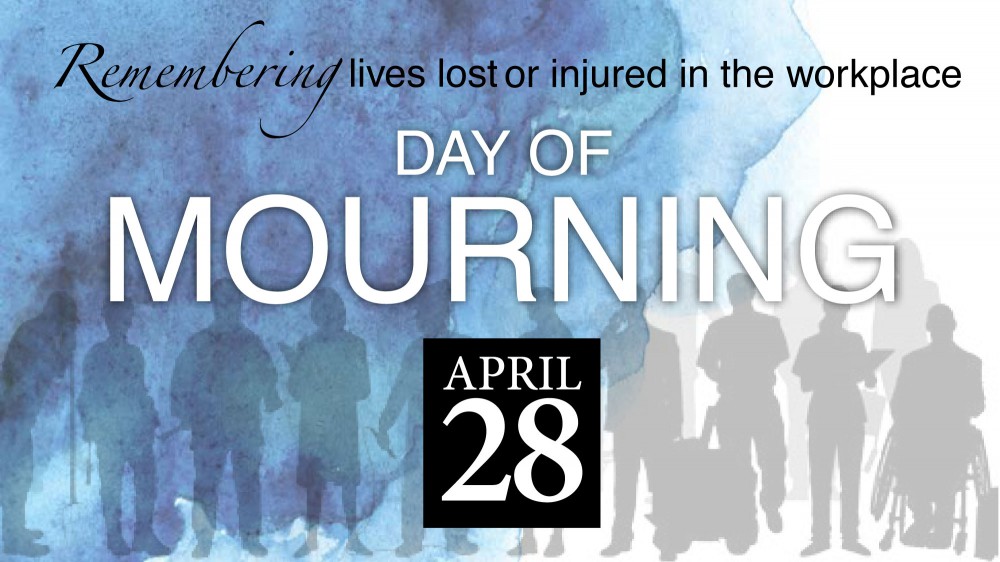On Day of Mourning, nurses recognize the role of workplace safety in patient safety advocacy
Today, April 28, is the International Day of Morning for workers killed and injured on the job.
In 2016, Alberta government statistics show 144 women and men in Alberta are known to have lost their lives to workplace illness, accidents and motor vehicle accidents associated with their work.
That was a 15-per-cent increase from the previous year despite of the effects of the downturn in the economy. However, those tragic numbers nevertheless show a decline from 188 such deaths in 2013, at the height of the economic boom in Alberta.
Each April 28, nurses speak up for workplace safety – for its own sake, and for the essential role it plays in our ability as union members to advocate for patient safety.
Nurses’ patient-safety advocacy is well known, understood and supported by Albertans and Canadians. They see such advocacy as a core part of the job of any nurse – and they are glad it is a role members of United Nurses of Alberta take seriously and strive to fulfill throughout their careers.
UNA also believes speaking up forcefully for the safety of nurses, other health care workers and all working people on the job is part of our union’s patient advocacy role.
The links are obvious – effective health care depends on safe and skilled health care workers, yet nursing in particular is a job that carries health risks ranging from back injuries received moving patients to dealing with volatile situations.
Our goal is to help all working people and encourage them to be safe so they do not need the services health care professionals provide in emergencies.
For several years, UNA members have been concerned with the potential impacts on worker and patient health and safety of the security measures in Alberta health care facilities, especially those in remote locations where police services are far away and not always available.
Employers are required to provide safe workplaces for employees, and to educate all employees about how to report health and safety problems they have experienced or see developing, including the potential for workplace violence.
Because front-line nurses tend to emphasize patient care above all else, UNA strives to encourage them to take part in this vital reporting and monitoring process, which is essential to the occupational health and safety of everyone who works in or needs to use health care in Alberta.

